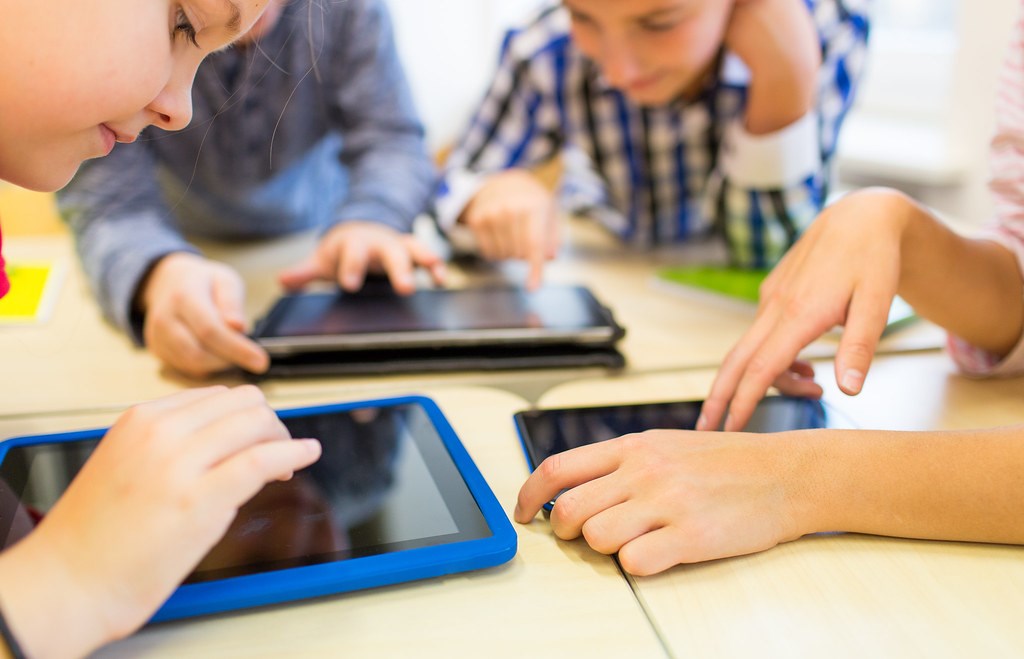0-3 DigiKids - Use of touchscreen technology by 0-3 year old children: Parents’ and Early Childhood educators’ perspectives and practices
0-3 DigiKids - Use of touchscreen technology by 0-3 year old children: Parents’ and Early Childhood educators’ perspectives and practices

Promoter: Universidade Católica Portuguesa
Partners:ISEC - Lisboa (Institute of Education and Science)
The Artic University of Norway
EEA Grants: 14 013,20 €
Total Amount: 59 283,20 €
Grace Code: PT-BI006
Programme:What did this initiative focus on?
The initiative "DigiKids 0-3: use of screen devices by children up to 3 years old: perspectives and practices" aimed to learn about the use of digital technologies with touch screen by children up to 3 years old, focusing on the study of practices and perceptions of parents and early childhood educators.
For this purpose, a study carried out in Norway was reproduced in Portugal, which included two phases of data collection:
- the first, quantitative and consisted of an online survey to parents of children up to 3 years old;
- The second was qualitative and included interviews with Directors of educational institutions (public and private) which included nursery and day care centres and interviews with nursery school teachers working in day care centres.
The results of this study were published in an eBook, which can be accessed here.
One of the outputs of the project was an online seminar attended by Norwegian researchers, where it was possible to talk about the initiative and discuss the results with comments from the participants.
Another output was the organisation of workshops for early childhood educators that transmitted the benchmarking carried out.
It was also possible, through this initiative, to create solid research networks that will lead to future collaborative projects.
As main results, it should be noted that, although research in this area shows that children are starting to use digital devices at an increasingly early age, the majority of the families surveyed state that their children do not use any digital device.
There are also several cases where children use them occasionally, especially their parents' smartphones, but there are few cases of regular use.
Parents have mixed perceptions about their children using digital device – they recognise potential for learning, but also fear negative consequences of excessive exposure, and therefore try to avoid such use by such young children, or that such use is very reduced.
The vast majority of the pedagogical directors/coordinators of kindergartens and nursery school teachers who answered the enquiry state that these devices are not used in the activity room. Sometimes this is due to lack of resources, but mainly due to the conviction of most of these professionals that this practice is harmful for such young children.
The perceptions of the professionals in this area regarding the use of screen devices with children in the activity room are predominantly negative. They base this view on scientific studies and the training they have received, and also on their experience with children, in which they consider that they observe more negative effects of excessive digital practices - especially at home - than positive effects. As a consequence, there are few practices with touchscreen devices in the activity rooms of these kindergartens. Still, in the few cases identified, the team found that the tablet is the preferred tool for a diversified use, with activities that include children, for recording daily activities, and to maintain communication with parents.
As recommendations, the team from the Católica University, promoter of the initiative, considers it important to review the study plans of the initial training in the first and especially in the second cycle in the area of Early Childhood Education, in order to incorporate training on the added value of the use of digital technologies in kindergarten, so that kindergarten teachers can form their opinion based on more diverse and updated sources of information, thus knowing practices of a digital use with educational intent, also giving useful advice to parents on a conscious and safe use. Instead of making it their "mission" to balance the presence of digital devices in children's lives, excluding them from the activity room because they are overused at home, nursery school teachers can play an important pedagogical role with families, showing them how these technologies should be integrated into children's daily lives, in a moderate, safe and meaningful way, supporting their development and well-being.